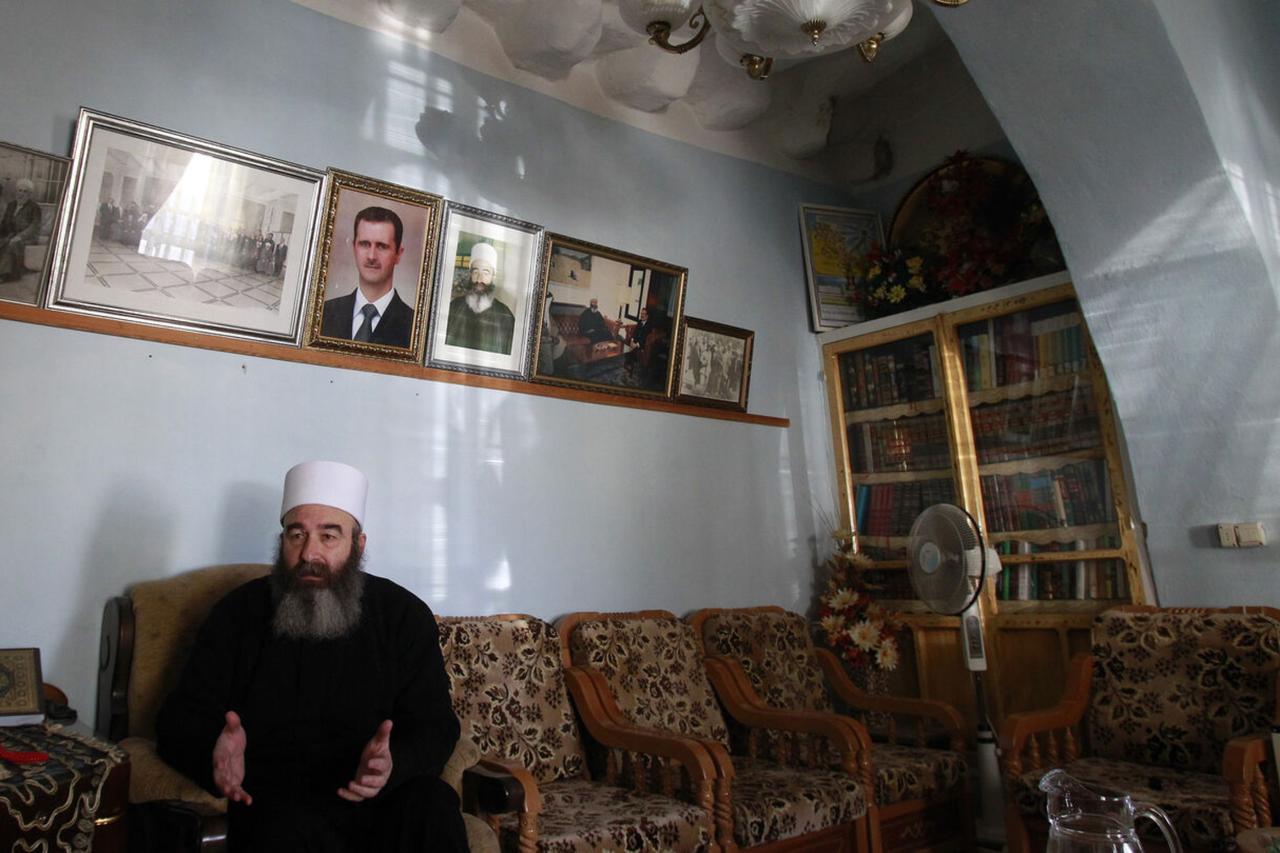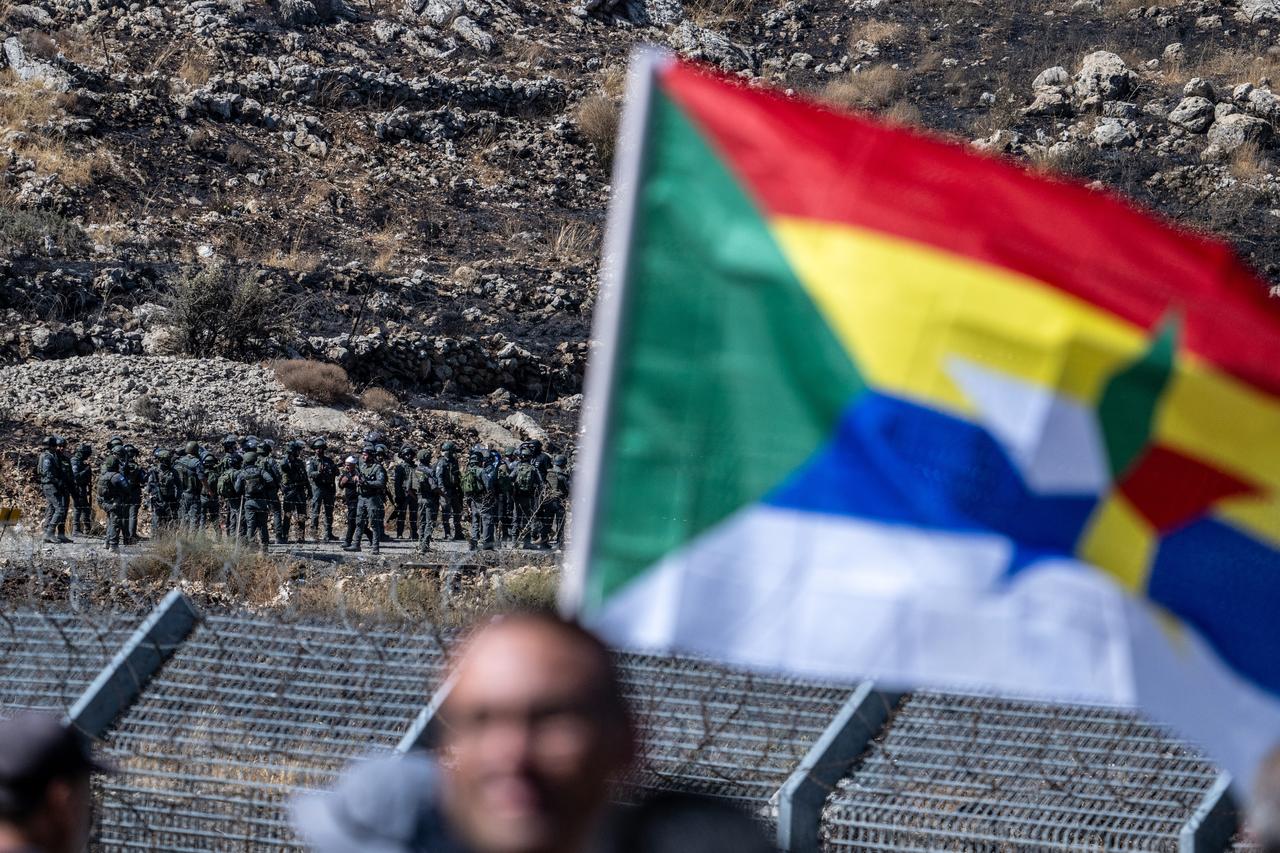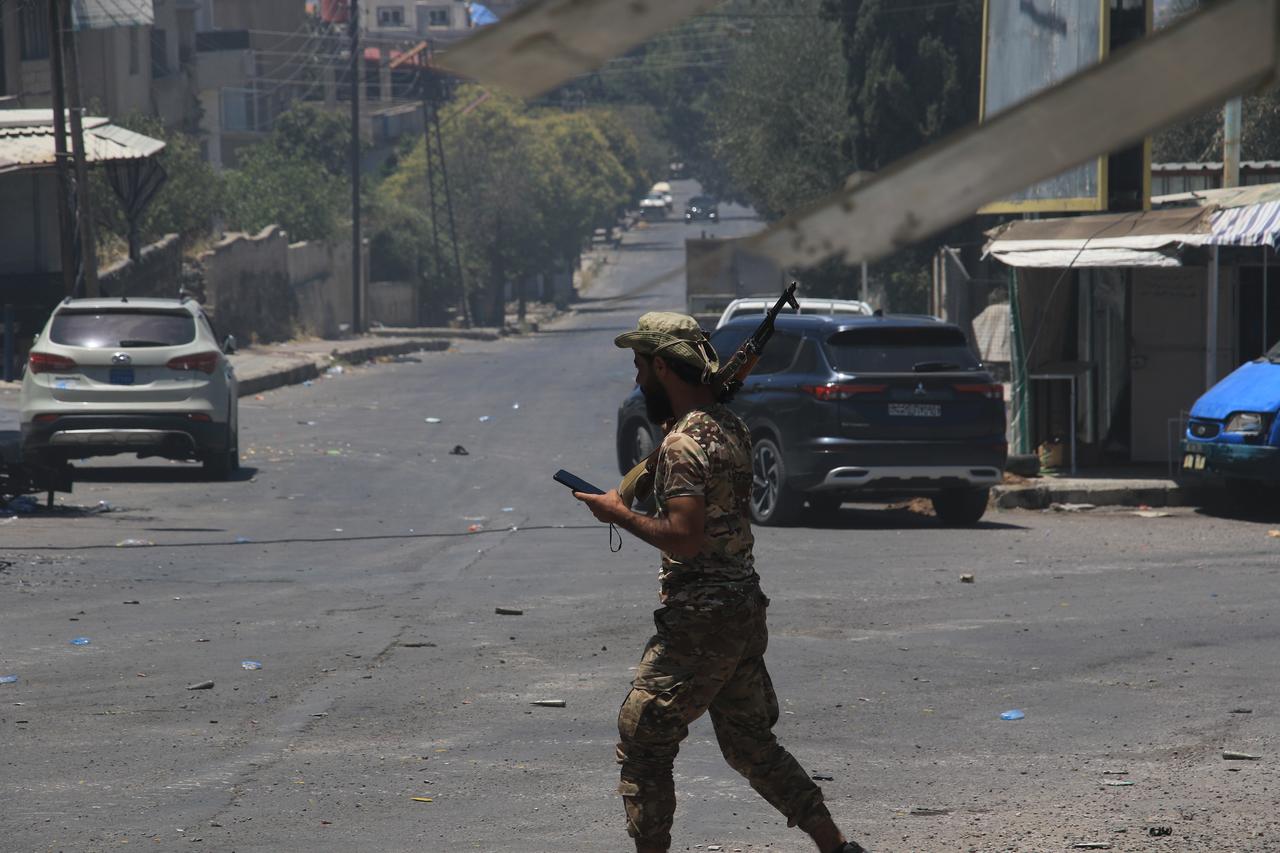
As violent clashes intensify in Syria’s southern province of Sweida, the name of Sheikh Hikmat al-Hijri, the spiritual leader of the Druze community, has once again come to the forefront. He remains one of the most influential figures shaping the province’s turbulent political and social landscape, particularly amid long-standing tensions with regime forces and local armed groups.
Hijri, a prominent religious and social authority among Syria’s Druze, was born in Venezuela in 1965, where his father was working at the time. He later returned to Syria, completed his education in Sweida, and graduated with a law degree from the University of Damascus in 1990.
After 1993, Hijri returned to Venezuela for work before returning to Sweida in 1998 and settling down in Qanawat, the headquarters of the Druze spiritual presidency, his hometown in northeastern Sweida.
He soon assumed the Spiritual Leadership—the primary Sheikh of Reason—in 2012, following the mysterious death of his brother, Sheikh Ahmad al-Hijri, in a car accident. At the time, fingers were pointed at the Assad regime, accused of orchestrating his assassination.

Since taking up the role of spiritual leader, Hijri’s political stance has fluctuated.
In the early years of the Syrian uprising, he maintained a relatively neutral position, despite his known proximity to President Bashar al-Assad. However, a turning point came in 2013 when he appeared alongside Assad at his brother’s funeral, delivering a controversial speech: ''This event has turned to joy. You are the hope—Bashar the hope, Bashar the nation, Bashar of pan-Arabism and the Arabs.”
In subsequent years, Hijri expressed unequivocal support for Assad. He encouraged Druze youth to join the Syrian army and, in 2015, publicly called on the regime to arm Sweida’s residents to defend against militants.
That same year, he demanded the dissolution of the anti-regime Men of Dignity movement, led by the late Sheikh Wahid al-Balous.
In 2017, a delegation from the Iraqi militia Harakat al-Nujaba visited Hijri, awarding him the so-called “Islamic Resistance Shield”—a move that further stoked controversy over his alignment with Iran-backed factions in Syria.
Despite years of alignment—or at least silence—toward Damascus, 2021 marked a clear rupture.
In early 2020, Hijri began to adopt a different stance, issuing a statement calling for an "economic rescue plan to rein in the corrupt." His remarks came amid a wave of public protests in the province over deteriorating living and economic conditions.
Nevertheless, it appears that the head of Military Security in southern Syria, Brig. Gen. Louay al-Ali, did not forget Hijri’s stance, reportedly insulting both the sheikh and the Druze community during a phone call between the two.
The incident sparked large-scale protests across the province and marked a significant shift in Hijri’s stance.
Though Assad attempted to contain the fallout with a direct phone call, tensions continued to escalate.
In 2022, Hijri openly called for the dismissal of Sweida’s security chiefs and declared a “general mobilization” against regime forces and affiliated militias.

Following the fall of Assad’s regime in December 2024 and the rise of transitional president Ahmad al-Sharaa, Hijri initially expressed willingness to cooperate with the new authorities, especially in administering Sweida’s sensitive affairs until a national army could be formed. He acknowledged a degree of alignment with the transitional political leadership.
However, by March 2025, Hijri had shifted his tone dramatically. He denounced the transitional government as "extremist and internationally wanted" and rejected the interim constitutional declaration outright. He called instead for a participatory democratic system.
In a striking departure from his earlier rhetoric, Hijri demanded international protection for Sweida, insisted on keeping local factions armed, and told The Washington Post that “Israel is not the enemy”—a stunning statement from a religious figure once associated with the Axis of Resistance.
In recent days, violent clashes broke out between armed Druze groups and Bedouin factions in Sweida over reciprocal vehicle seizures, resulting in over 30 deaths and 100 injuries, according to official reports.
Amid the turmoil, a statement was released Tuesday morning in Hijri’s name welcoming the Syrian government’s intervention in Sweida. But by the afternoon, the sheikh had disavowed the statement, calling it “a humiliating declaration forced upon us,” and accused the authorities of "breaking promises" and "indiscriminate shelling of civilians."
By Wednesday evening, Hijri had firmly rejected the government’s announced ceasefire agreement, declaring that the battle against what he described as “armed gangs” was far from over. He asserted that defending the land was a moral and national duty that could not be negotiated.
His remarks stood in stark contrast to a parallel statement issued by Sheikh Yousef Jarbou, another senior Druze leader, who confirmed reaching a ceasefire deal with Damascus. The contrasting messages highlight deepening divisions within the Druze leadership.